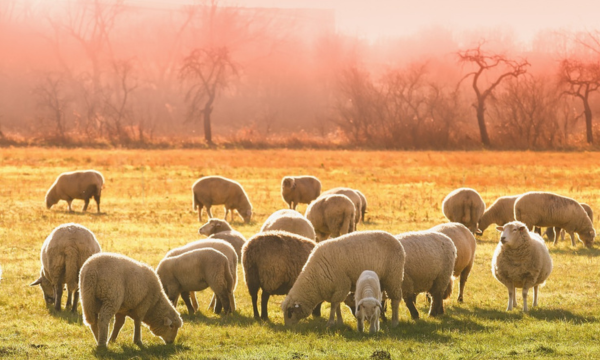
Average livestock farm incomes in Wales are expected to fall by more than 30 per cent in the last financial year, with averages for holdings in less favoured areas some 37 per cent down, the latest official projections show.
Welsh Government’s Forecast of farm incomes in Wales provides an annual insight into long-term trends in farm incomes and market performance. Hybu Cig Cymru – Meat Promotion Wales’ (HCC) February Market Bulletin looks at the results of the publication featuring the 2022-23 financial year in more detail.
The document forecasts average business income for a LFA cattle and sheep farm to have decreased by 37% on the year to £24,300 per farm (current prices).
“The notable year-on-year decrease for LFA farms, after three consecutive years of increases, is a result of farm business output falling by an average of eight per cent, combined with business costs rising by three per cent,” said Glesni Phillips, HCC’s Intelligence, Analysis & Business Insight Executive, who edits Market Bulletin.
“The report forecasts the income for a lowland cattle and sheep farm in Wales at £18,700 for 2022-23 – a 30 per cent decrease on the previous year’s figure. The figures indicate that the rise in input costs had a greater impact on lowland farms, where costs were up as much as 13 per cent on the year. This meant the five per cent increase in farm output for lowland farms was not enough to offset the rise in farm costs,” she concluded.
The period concerned- April 2022 to March 2023- coincides with the war in Ukraine and the cost-of-living crisis – both of which have had a considerable impact on farm businesses in Wales.
“The data indicates that, across all farm types, which includes dairy, farm input costs rose by an average of 15 per cent year-on-year, which has impacted on overall profitability,” said Glesni.
Market Bulletin reflects that the challenges with increased inflationary costs have been seen across the supply chain, with elements such as staff, utilities, fuel, insurance and business rates all impacting on business profitability. Increases in the National Minimum Wage put pressure on the ability of businesses to retain staff. As of 01 April 2024, it will increase to £11.44/hour (for staff 21 years and over) – which is an increase of almost 60 per cent since 2016.
“Such inflationary uplifts are bound to put additional pressures onto the supply chain,” said Glesni. “And the sector is also continuing to face challenges from the demand side, as the cost-of-living crisis puts pressure on household expenditure and impacts on shopping habits.”
She said it must be remembered that volatility within the farming sector can lead to large percentage changes in farm incomes between each year and farm income averages will only provide an indication of the sector’s performance, as variations will exist at farm level.
“The level of income for a farm business can be influenced by a huge range of factors – such as physical location, economic size of the farm, production costs, whether the business is investing and the skill set of the business person,” said Glesni.











